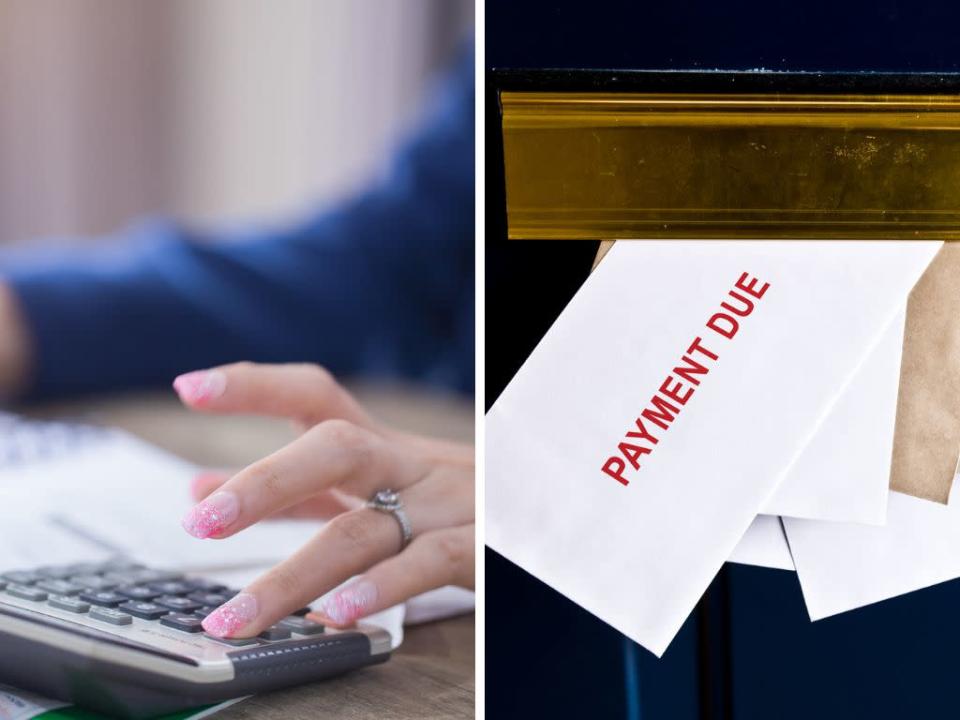STOP: Don’t clear your debt without thinking about these 6 things first

For many Aussies, tax return time is a great time of year – it feels like a pleasant windfall (even though it isn’t, and it’s your own money you’re getting back).
So while you might be tempted to think about spending that money on a holiday or a shopping spree, there are smarter – albeit more boring – ways to spend the money you should’ve received as part of your paycheck.
Aussies carry some of the highest amounts of personal debt in the world, and more than a million households struggle with mortgage stress.
Thinking of chipping away at your debt?
Here are 6 things you should consider before you pay off your debt with your tax return, according to Employment Hero CEO Ben Thompson:
1. Figure out exactly how much you owe
There’s no way around this: you’ll have to get down to the nitty-gritty of it, so brace yourself.
“When was the last time you pulled together a list of your debts, their interest rates, and worked out where you sit in a net position with your finances?” Thompson said.
Not understanding your financial situation will make it overwhelming, and make you believe you’re in a worse situation than you actually are.
“So, the first step in working out which debts to tackle first is to understand where you sit financially and take it from there.”
Related story: What debt distress REALLY costs you
Related story: Maps: Where mortgage stress is worst in Australian capital cities
Related story: Here’s an alternative way to deal your with financial stress
2. Prioritise debts with the highest interest rate
If you’re prepared to tackle this head-on, take the ‘avalanche’ approach, said Thompson.
“Write an itemised list of your debts, their balance, and their interest rates and begin focusing on one debt to allocate your tax return to first, while maintaining the minimum payments on your other debts,” he advised.
“If it covers more than one debt, fantastic. If not, this is still a tried-and-true tactic in tackling your debts over time.”
3. Alternatively, prioritise debts with the lowest balance first
This is the ‘snowball’ approach and is for those who are spurred on to pay even more of their debts by that initial little buzz of satisfaction after you’ve achieved a goal.
“Start by allocating your tax return to the debt with the lowest balance, regardless of interest rate, and continue on using that method until you’ve paid down all of your debts,” Thompson said.
It may not be “the most fiscally responsible way” of managing your money, but you should do whatever works for you, he said.
4. Consolidate your debts
If the volume of all your separate debts is too overwhelming, consider lumping all your debts into one large loan that absorbs all your other debts with (hopefully) a lower interest rate than each of your individual debts.
“It’s a great option, plus, you can start off by taking out a nice chunk using your tax return and continue paying them down with one simple monthly payment,” Thompson advised.
5. Set up an emergency fund
Your rainy-day fund is an “essential element” to being financially responsible, stated Thompson. Debts will accumulate when you run into unexpected events, like car repairs or family emergencies.
“If you don’t have at least a month’s worth of expenses stashed away, it’s a great idea to allocate a portion of your tax refund in creating an emergency fund.”
How much should you have saved up for your rainy-day fund? The general consensus is three month’s pay or living expenses.
6. Don’t do this every year
Don’t fall back on your tax return every year to bail you out of your debt – especially as you might not be guaranteed a return every year, Thompson pointed out.
“Take your tax return as an opportunity to wipe your financial slate clean and develop smart money habits,” he said.
“And, if you are receiving a large return it’s worth looking into why so much tax is being withheld from your paycheck.”
“If you manage to reduce the amount of tax withheld, you could end up with a fatter wallet and potentially curb your credit card spending.”
Make your money work with Yahoo Finance’s daily newsletter. Sign up here and stay on top of the latest money, news and tech news.

 Yahoo Finance
Yahoo Finance 
